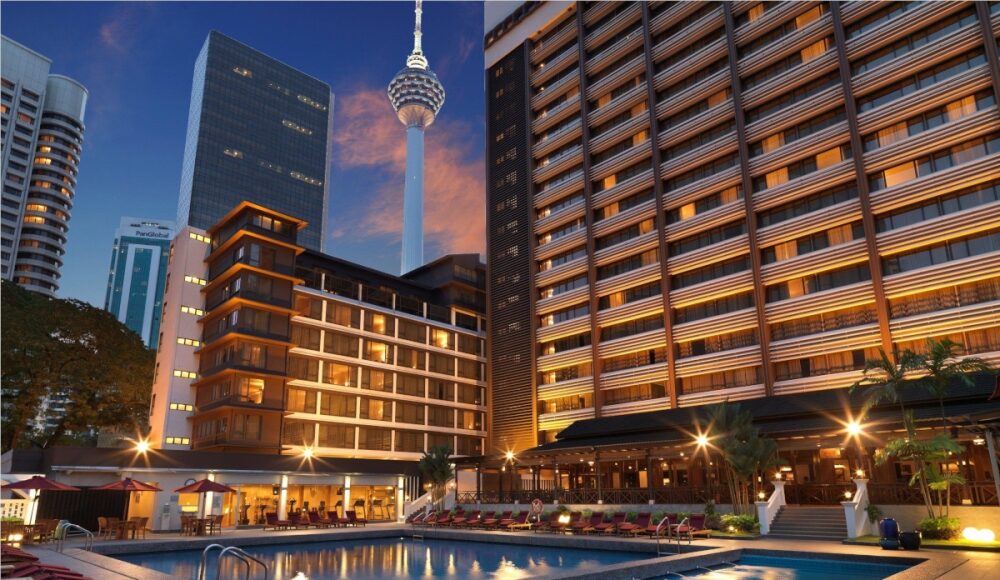JUNE 17 — As Malaysia gears up for Visit Malaysia 2026, attention is turning to the hotel industry, being one of the tourism sector’s key pillars.
Experts are calling for strategic reforms to ensure digital transformation supports long-term sustainability.
This article focuses on hotels, which play a vital role in shaping visitor experiences, promoting national branding and supporting Malaysia’s sustainability goals.
Many Malaysian hotels are still falling short in aligning digital transformation efforts with broader environmental, social and governance (ESG) priorities.
This misalignment could slow the momentum gained during the post-pandemic recovery and may affect Malaysia’s standing as a credible sustainable travel destination.
Before the Covid-19 pandemic, the hotel sector had begun to show stronger commitment to sustainability.
A number of upscale hotels were pursuing green certifications, investing in energy-efficient systems and engaging in community-based tourism.
Digitalisation was also progressing, though conservatively, with a focus on enhancing efficiency through online booking platforms and loyalty programmes.
While these efforts were encouraging, they remained fragmented and were not yet supported by comprehensive ESG strategies.
A Kuala Lumpur hotel, with view of the KL Tower. — HotelsCombined pic
The pandemic acted as both a catalyst and a disruptor. Between 2020 and 2023, hotels rapidly adopted technologies such as contactless check-ins, smart room automation and remote guest services to enhance safety and maintain operations.
Although these tools improved operational continuity, many were adopted without being anchored in broader sustainability planning.
Integration with environmental performance tracking, such as carbon monitoring or electronic waste management, remains limited.
This disconnect between digitalisation and environmental accountability highlights a broader challenge.
In many cases, digital upgrades were introduced for convenience or cost reduction, without considering long-term ESG implications.
As a result, these systems can contribute to higher energy consumption, increased data demands and unmanaged digital waste.
The key for Malaysia’s hotel industry is not only to innovate but to ensure innovation is aligned with measurable sustainability outcomes.
Integrating ESG into digital systems is essential for credible reporting and strategic management. Without it, hotels may struggle to produce reliable data, potentially limiting access to green financing opportunities such as sustainability-linked loans.
A lack of transparent and evidence-based disclosures may also reduce stakeholder trust and investment appeal.
This gap also fails to meet the expectations of post-pandemic travellers, who are increasingly environmentally conscious and digitally informed.
According to Booking.com’s Sustainable Travel Report 2024, 76 per cent of global travellers expressed a desire to travel more sustainably in the coming year, and 65 per cent said they would feel more confident selecting accommodation with recognised sustainability certification.
These trends reflect rising demand for visible and credible sustainability performance at the booking stage.
In Malaysia, although digital technologies have become more widespread, their use to support or communicate sustainability commitments remains limited.
A 2024 study on hotel environmental practices found that most sustainability efforts are still basic, such as energy-saving measures or waste reduction; and are often driven by cost efficiency rather than long-term planning.
Similarly, a 2025 analysis of tourism recovery found that while digital tools are increasingly used, they are rarely accompanied by systems that monitor or report environmental impact.
Communication of ESG efforts is another challenge. Hotels frequently highlight social initiatives, such as staff activities or charity drives, as these are more relatable and easier to share digitally.
However, effective ESG reporting requires a balanced approach that covers environmental, social and governance pillars.
Without this balance, hotels risk presenting an incomplete picture of their performance and value, potentially weakening brand position and stakeholder trust.
This communication gap has operational and reputational implications. With Visit Malaysia 2026 approaching, international travellers, travel platforms and rating agencies will likely assess how well Malaysia’s hotels align with global sustainability benchmarks such as the UN Sustainable Development Goals (SDGs) and the Global Reporting Initiative (GRI).
Inadequate ESG transparency may result in lost competitiveness compared to destinations seen as more accountable.
Government support has begun to respond to these challenges. The Ministry of Tourism, Arts and Culture (Motac) has positioned sustainability as a key focus in the Visit Malaysia 2026 campaign. In addition, Motac is investing in digital marketing to promote eco-conscious tourism experiences, signalling a stronger alignment between destination marketing and sustainable development objectives.
On the certification front, the Malaysia Green Hotel Certification, developed in line with Asean standards, has been introduced to recognise hotels that meet specific sustainability benchmarks.
While still in the early adoption phase, the certification reflects growing institutional efforts to formalise ESG practices in the sector.
These measures can help hotels integrate sustainability more systematically into both operational strategies and digital engagement, especially as the industry prepares for greater scrutiny.
Industry observers stress that time is of the essence. Hotels are encouraged to reassess their digital investments through a sustainability lens, recognising that this is not just about technological advancement but also about strengthening operational continuity, stakeholder confidence and long-term financial sustainability.
Hotels that move early to align digital transformation with ESG principles are likely to gain a competitive advantage, particularly as sustainability performance grows in importance to both consumers and investors.
Malaysia’s hotel sector now stands at a critical juncture. The momentum from post-pandemic recovery and the visibility offered by Visit Malaysia 2026 present an opportunity to redefine the industry’s approach to sustainability.
Achieving this will require coordination between public policy, private sector practices and improved ESG reporting frameworks.
The path forward lies in adopting integrated and transparent sustainability strategies that are actively communicated through digital platforms.
By doing so, Malaysian hotels can strengthen their market position, attract environmentally conscious travellers and investors, and subsequently contribute meaningfully to the country’s broader development agenda.
* Dalilawati Zainal is a senior lecturer at the Department of Accounting, Faculty of Business and Economics, Universiti Malaya, and may be reached at [email protected]
** This is the personal opinion of the writer or publication and does not necessarily represent the views of Malay Mail.





